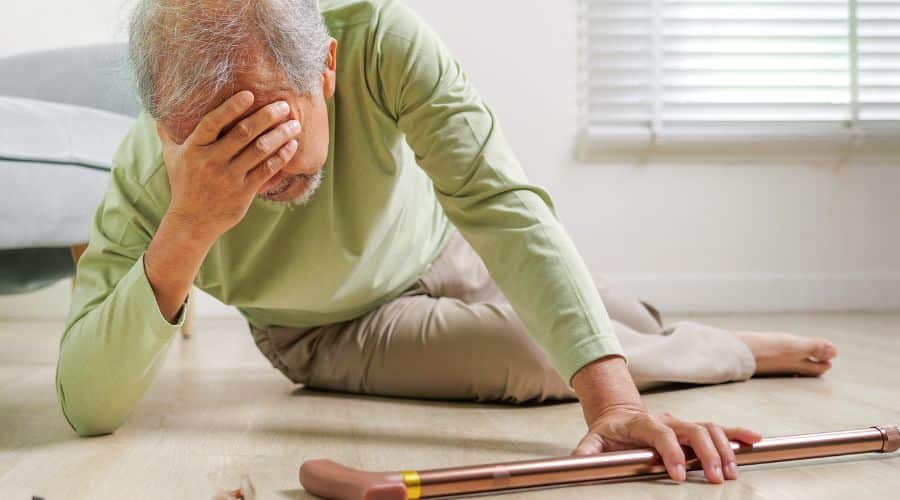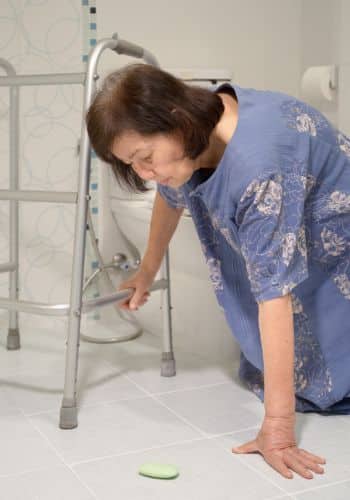Balance & Fall Risk
Do you find yourself waking up with nagging or excruciating pain in your back?
What Is A Balance Disorder?
A BALANCE DISORDRER is a condition that makes you feel unsteady or dizzy.
There are more than a dozen causes of dizziness and many reasons why you might have difficulty with your balance.
Treatment of balance & dizziness disorders can be very complex.
Nevertheless, we have helped numerous residents in Lakeway, Dripping Springs, and South Austin / Onion Creek cope with AND recover from conditions that cause balance disorders.
Common Diagnoses that can lead to balance disorders that we work with:
- Central Nervous System Disorders
- Neuropathy
- Age-Related Balance Dysfunction
- Oculomotor (Visual) Dysfunction
- Benign Paroxysmal Positional Vertigo (BPPV)
- Labyrinthitis
- Ménière's Disease
- Vestibular Neuronitis
- Muscle Atrophy
- Nerve Injuries
Need To Know More About Cost and Availability?
If you’d like to find out more information about the cost and availability of our services click the button below to complete a short form, a member our team will then reach out.


When should i seek help if i think i have a Balance Disorder?
To help you decide whether to seek medical help for a dizzy spell, ask yourself the following questions.
If you answer “yes” to any of these questions, talk to your one of our physical therapists and your doctor:
- Do I feel unsteady?
- Do I feel as if the room is spinning around me?
- Do I feel as if I'm moving when I know I'm sitting or standing still?
- Do I lose my balance and fall?
- Do I feel as if I'm falling?
If you are standing, sitting, or lying down, you might feel as if you are moving, spinning, or floating. If you are walking, you might suddenly feel as if you are tipping over. Everyone has a dizzy spell now and then, but the term “dizziness” can mean different things to different people. For one person, dizziness might mean a fleeting feeling of faintness, while for another it could be an intense sensation of spinning (vertigo) that lasts a long time.
Experts believe that more than four out of 10 Americans, sometime in their lives, will experience an episode of dizziness significant enough to send them to a doctor.
Balance disorders can be caused by certain health conditions, medications, or a problem in the inner ear or the brain. A balance disorder can profoundly impact daily activities and cause psychological and emotional hardship. Bad falls are a constant worry for seniors and others who have physical challenges. And those worries aren’t unfounded. Falls are the leading cause of injury-related deaths and serious health problems in the U.S.
Improving your walking skills — technically known as your “gait” — and your balance are interrelated challenges.
At Body Balance Physical Therapy we help you master these skills to decrease your risk of injury, while at the same time increasing your confidence and independence.
What are the symptoms of a Balance disorder?
If you have a balance disorder, you may stagger when you try to walk, or teeter or fall when you try to stand up. You might experience other symptoms such as:
- Dizziness or vertigo (a spinning sensation)
- Falling or feeling as if you are going to fall
- Lightheadedness, faintness, or a floating sensation
- Blurred vision
- Confusion or disorientation
Other symptoms might include nausea and vomiting, changes in heart rate and blood pressure, and fear, anxiety, or panic. Symptoms may come and go over short time periods or last for a long time, and can lead to fatigue and depression. A major sign of problems is the need to use a front wheel walker or cane to maintain balance or because of a fear of falling.
Request A Call Back from a Physical Therapist
If you’re not quite ready to book an appointment yet and have some questions you would like answered first, click the link below to complete a form to get the conversation started.
What are the benefits of balance and gait training?
Balance and gait are inextricably linked because they tend to impact one another. Even if you don’t think you’re in danger of falling over, that “running out of steam” while walking that you’re attributing to aging muscles could be something else. The problem might actually be slowing reflexes, which make moving around seem more strenuous than it is. By the same token, poor posture and gait can throw off those reflexes.
In fact, the balance and gait systems both rely to some extent on a complex number of body systems that include the inner ear, the eyes, the joint-muscle-nerve system, and of course cognitive functions. Therapy that improves gait and balance works with all of these systems to keep them functioning in harmony. Gait and balance training has a range of benefits, with avoiding injuries being at the top of the list. Beyond lessening your chances of falling or feeling dizzy, you’re also more likely to feel confident with your footing. In addition, those aches and pains from poor posture are likely to decrease as well.
What does balance and gait training entail?
First, we’ll evaluate your gait to determine potential problems with strength and posture. Simple movements to test balance are also part of the assessment. Together, these basic evaluations point us in the direction of what to focus on in terms of therapy. Physical therapist directed treatment can assist patients with balance disorders in a number of ways. As experts in the evaluation and treatment of movement, muscle, joint, and nervous system disorders, our physical therapists can prescribe and implement a variety of treatments including:
- Coordination Exercises
- Proprioception Exercises
- Strengthening Exercises
- Stretching and Range of Motion Exercises
- Posture Exercises
- Retraining of the Inner Ear
- Visual Tracking training
At Body Balance Physical Therapy, our Doctors of Physical Therapy will help realize how important balance and walking is for independent living, as well as for work activities, exercise, sports and enjoying life in general.
That’s why we provide a range of programs and therapies to evaluate and treat balance disorders:
- Assessment and Evaluation Programs
- Difficulty Walking
- Gait Training and Balance Programs
- Fall Prevention and Balance Retraining
- Manual Therapy
- Fitness and Wellness Programs
- Vestibular Rehab
- Functional Training
Decline in balance and walking ability is not a normal progression of life.
Balance issues are usually attributed to lack of daily challenge and stimulation of the sensors in your joints, muscles and brain that support good balance and steadiness. Improving overall strength, endurance, muscle power and challenging your balance systems in specific ways are how physical therapy helps to improve balance, walking and safety.
Unsteadiness and falls can also be due to inner ear problems, vision impairments, medication side effects and other neurological processes, which we will assess to determine the most appropriate strategy to keep you safe and independent.
Request A Free Discovery Visit
Are you unsure if physical therapy is right for you? Take advantage of our FREE discovery visits which help identify your issues and if we can provide help!
** Please note there is no treatment given during one of our discovery visits. These visits are designed to evaluate your needs and ensure we can offer the help you need.
Education Is Therapy
The most important part of treating a balance disorder is understanding your diagnosis, the cause of the problem, and how to manage it.
That’s why we place great emphasis on patient education and coordination of care with your referring physician.
three additional and important tretament options
Reduce Fall Risk. Your physical therapist will assess problem footwear and hazards in your home that increase your risk of balance problems or falling. Household hazards include loose rugs, poor lighting, unrestrained pets, or other possible obstacles.
Reduce Fear of Falling. By addressing specific problems that are found during the examination, your physical therapist will help you regain confidence in your balance and your ability to move freely, and perform daily activities. As you build confidence in your balance and physical ability, you will be better able to enjoy your normal daily activities.
Care Collaboration. Working in collaboration with your medical doctor, allows you to get two expert opinions and assessments of your condition. Together, we can better address your balance disorders and decrease your fear of falling and fall risks.
WE CAN HELP YOU COPE WITH YOUR CONDITIONThe physical therapists at Body Balance Physical Therapy can help increase your strength and coordination to help lower your risk of falling and getting hurt during daily activities, such as when you walk up or down stairs, use the bathroom, or exercise.
Some people with a balance disorder will need the help of our vestibular rehabilitation therapists to cope with their problems. In each case, we will conduct a personalized evaluation of your condition and then we will develop an individualized treatment plan.
CALL TODAYCall us today to learn more about how we can develop a personalized treatment program for your balance problems and help you get back to enjoying a higher quality of life.
